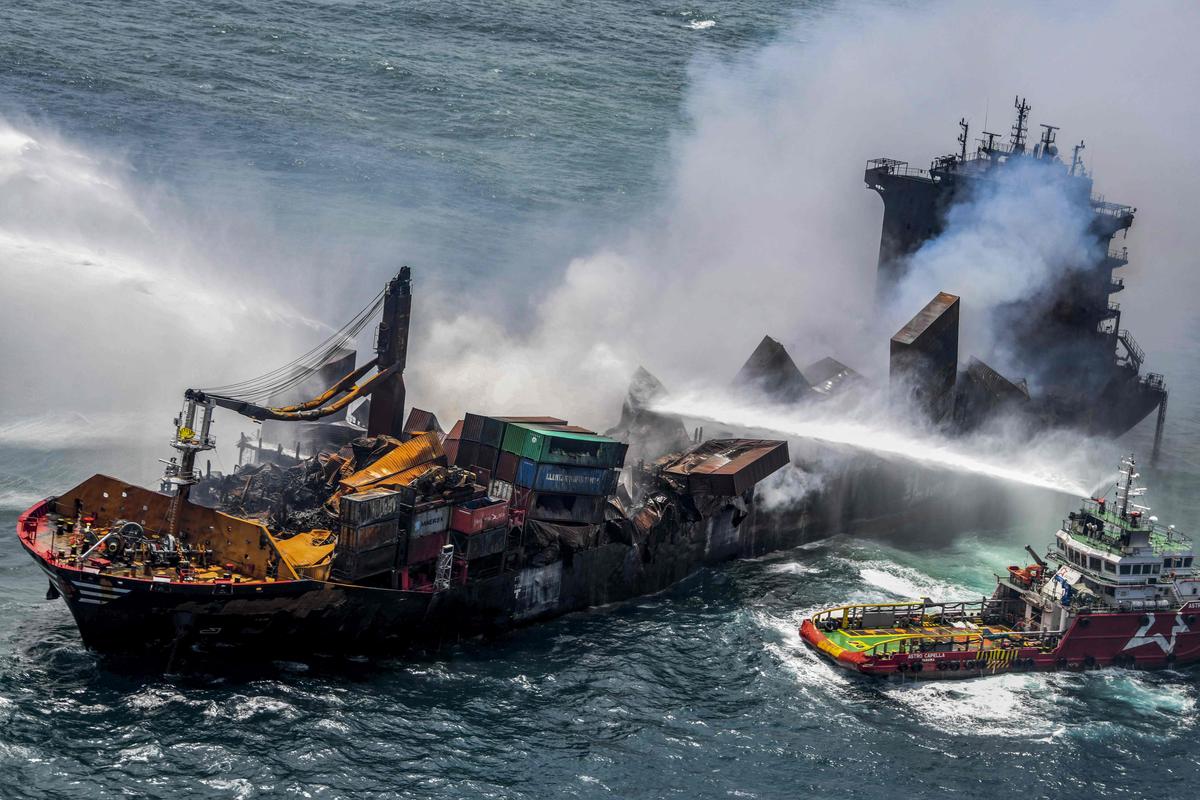BBC Reveals Enduring Environmental Impact of Sri Lanka’s Cargo Ship Catastrophe

Four years after the X-Press Pearl disaster, which resulted in the largest plastic spill in history, Sri Lankan beaches are still grappling with the aftermath. Volunteers continue to sift through the sands, collecting toxic plastic pellets known as nurdles. The environmental impact of the incident, which occurred in May 2021, is proving to be more severe and long-lasting than initially anticipated, raising concerns among scientists and local communities alike.
Ongoing Cleanup Efforts
Since the X-Press Pearl sank off the coast of Sri Lanka, volunteers have tirelessly worked to clean up the beaches. Initially, hundreds of millions of nurdles were removed, but as time passed, the task became increasingly challenging. The lentil-sized plastic granules have buried themselves deeper into the sand, making them harder to locate. Environmentalist Muditha Katuwawala, who founded the Pearl Protectors NGO, described the early days of the cleanup as overwhelming, with volunteers collecting up to 400 kilograms of nurdles daily. However, as the nurdles became more dispersed, the amount collected dwindled to just a few kilograms in a couple of hours. The effort was eventually deemed unsustainable, leading to a shift in responsibility to state-organized cleanup groups.
Environmental Concerns
Scientists are now raising alarms about the long-term environmental damage caused by the spill. Research indicates that the remaining nurdles are not only harmful but may also be becoming more toxic over time. David Megson, a researcher from Manchester Metropolitan University, noted that these plastic pellets act like “chemical sponges,” absorbing pollutants from the ocean. The implications for marine life are dire, as these contaminated nurdles can be ingested by fish and other aquatic organisms, potentially passing on harmful substances through the food chain. Tests on fish caught near the disaster site revealed alarming levels of hazardous metals, raising concerns about the safety of consuming seafood from the area.
Impact on Local Communities
The disaster has had a profound effect on local fishermen and their livelihoods. Fisherman Jude Sulanta lamented the drastic decline in fish populations since the incident, stating, “There’s no fish since then.” Many fishermen are now selling their boats and seeking opportunities abroad, as the once-thriving fishing industry faces an uncertain future. The Sri Lankan government has taken legal action against the ship’s owner, X-Press Feeders Ltd, seeking compensation for the extensive environmental and economic damage caused by the disaster. While the company claims to have spent over $130 million on cleanup efforts, local authorities argue that this amount is insufficient to address the long-term consequences of the spill.
Legal and Financial Ramifications
In a recent ruling, Sri Lanka’s Supreme Court ordered X-Press Feeders to pay $1 billion as an initial compensation for the disaster’s long-term impacts. However, the ship’s owner has expressed disappointment with the judgment and is reviewing its options. The company contends that the Sri Lankan government has not adequately managed the cleanup process and that the compensation cap imposed by a UK maritime court limits their financial responsibility. Environmental economist Prof. Prashanthi Guneeardena estimates the total cost of the disaster could exceed $6 billion, factoring in wildlife loss, tourism decline, and health risks from toxic exposure. As the situation continues to unfold, the local community remains hopeful for justice and a restoration of their once-vibrant marine ecosystem.
Observer Voice is the one stop site for National, International news, Sports, Editor’s Choice, Art/culture contents, Quotes and much more. We also cover historical contents. Historical contents includes World History, Indian History, and what happened today. The website also covers Entertainment across the India and World.
Follow Us on Twitter, Instagram, Facebook, & LinkedIn

